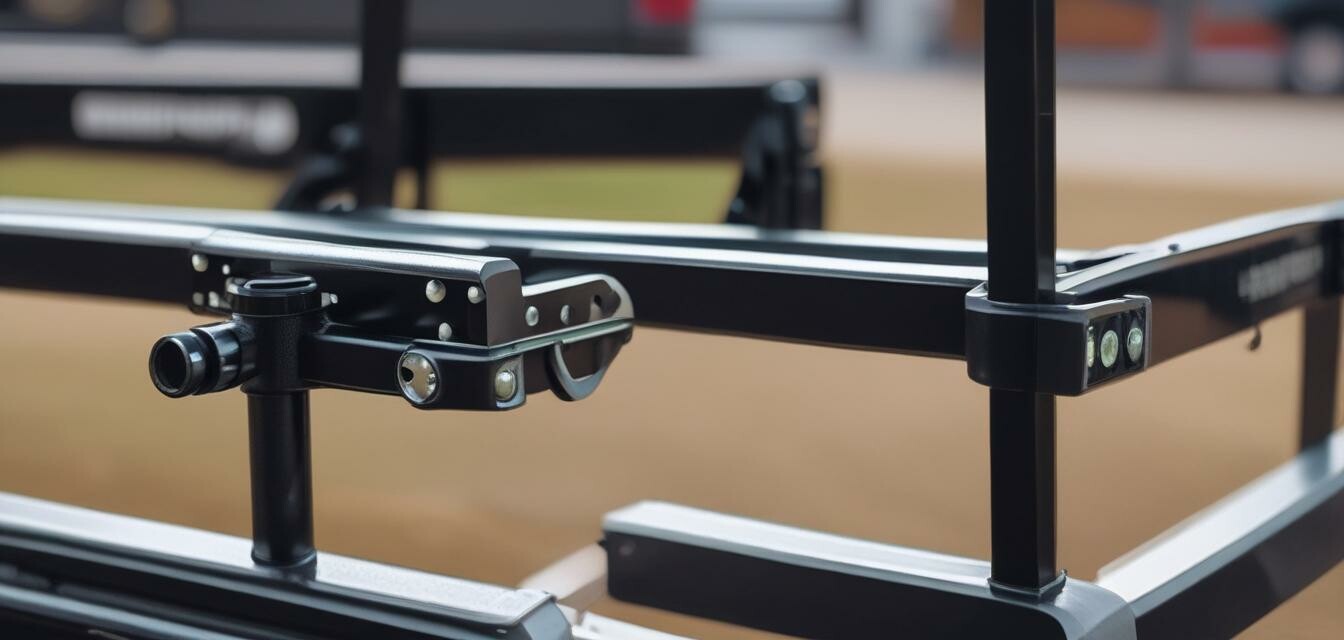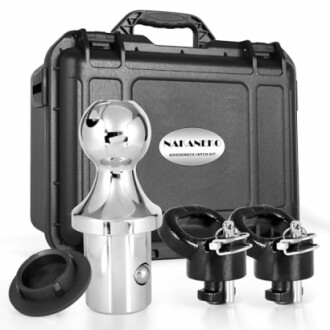
A Beginner’s Guide to Choosing Trailer Hitches
Key Takeaways
- Understand the different types of trailer hitches available.
- Consider your vehicle's towing capacity and hitch class.
- Identify the type of trailer or cargo you will be towing.
- Ensure compatibility with your vehicle make and model.
- Review safety features and installation requirements.
Whether you're an outdoor enthusiast or someone who needs to transport cargo, understanding how to choose the right trailer hitch is crucial. This guide will walk you through everything you need to know about selecting a hitch that fits your vehicle and meets your cargo needs.
Types of Trailer Hitches
Trailer hitches can be categorized based on their design, functionality, and weight capacity. Here's a breakdown of the most common types:
| Type of Hitch | Description | Common Uses |
|---|---|---|
| Receiver Hitch | A standard hitch with a square receiver tube for various attachments. | Utility trailers, bike racks, and cargo carriers. |
| Gooseneck Hitch | A hitch that mounts in the truck bed and features a ball for towing. | Heavy-duty trailers such as horse and RV trailers. |
| Fifth Wheel Hitch | A hitch designed for use with a fifth wheel trailer, mounted in the bed of the truck. | Large RVs and trailers. |
| Weight Distribution Hitch | A hitch that redistributes weight across the tow vehicle and trailer. | Longer trailers for improved stability while towing. |
Choosing the Right Hitch for Your Vehicle
To select the appropriate trailer hitch, you need to consider a few factors, including:
- Vehicle Towing Capacity: Check your vehicle's owner manual for its towing capacity limits.
- Weight Class: Hitches are rated by classes (I-IV), with each class signifying a different weight limit.
- Type of Cargo: Identify what you will mainly be towing to choose the best hitch type.
Understanding Weight Classes
Trailer hitches fall into different classes based on their weight ratings:
| Class | Towing Capacity | Common Applications |
|---|---|---|
| I | Up to 2,000 lbs | Small trailers, bike racks |
| II | 2,000 - 3,500 lbs | Utility trailers, small boats |
| III | 3,500 - 8,000 lbs | Heavy-duty trailers, larger boats |
| IV | Over 8,000 lbs | Commercial trailers, RVs |
Important Features to Consider
While shopping for a trailer hitch, it's essential to look for specific features:
- Safety Chains: Look for a hitch that includes safety chain attachments for added security.
- Easy Installation: Choose a hitch that is designed for straightforward installation without professional help.
- Durability: Opt for hitches made from strong materials like alloy steel, suitable for heavy loads.
Recommended Trailer Hitch: Nakaneko 60618 Puck System Gooseneck Hitch Kit
The Nakaneko 60618 Puck System Gooseneck Hitch Kit is an excellent choice for those looking to haul heavy trailers efficiently. Here are its highlights:
Nakaneko 60618 Puck System Gooseneck Hitch Kit
This hitch kit provides a standard 1-1/4-inch x 1-1/4-inch receiver hitch, rated for 30,000 lbs GTW, allowing you to tow heavy loads safely.
Learn MoreInstallation and Safety Tips
Proper installation of your trailer hitch is crucial for safety. Here are a few tips:
- Follow the manufacturer's installation guidelines to ensure proper fitment.
- Use the right tools and equipment for installation.
- Regularly check and maintain the hitch to ensure safe towing.
Conclusion
Choosing the right trailer hitch can make all the difference for your towing needs. By understanding the different types, weight classes, and features, you can select a hitch that works best for you. Whether you're carrying a small bike or a heavy trailer, ensuring compatibility with your vehicle and cargo will lead to successful towing adventures.
Explore more guides in our Buying Guides section to find the perfect transportation solutions for your adventures!

